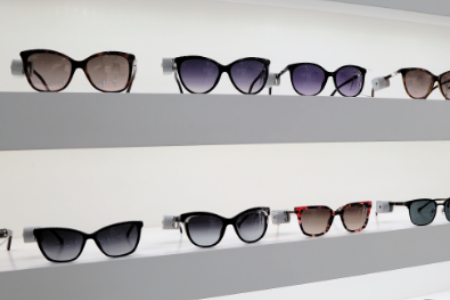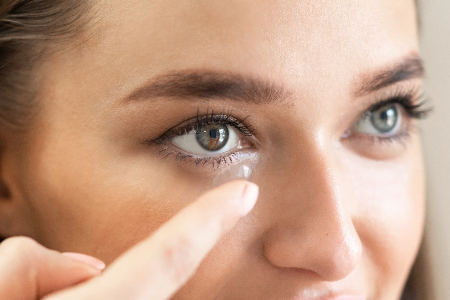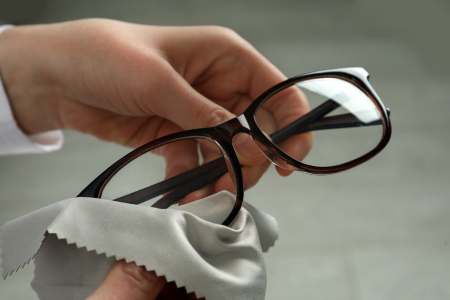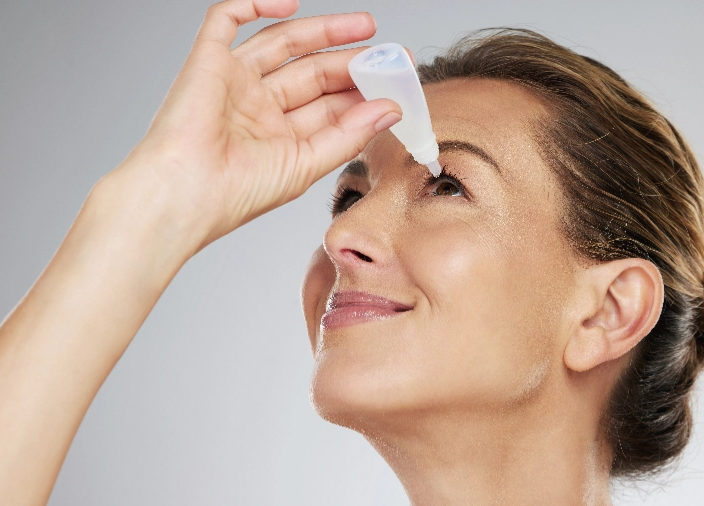Dry eyes are an uncomfortable, yet a common condition that occurs either because the eyes are not able to make enough of tears or they evaporate too quickly. In such a situation eyes may sting or burn, are dry or swollen making you feel a tad uneasy.
Opting for a suitable treatment plan for your dry eye is the way to go to manage this problematic situation & give you a better perspective of things!
Understanding Normal Tears
Tears are produced in the Lacrimal Glands that are located near the top of the eyeball & spread over the front of the eyeball into tear ducts & down into the nose. Dry Eyes occur when there is an inadequate number of tears produced by the eye or tears are not distributed evenly across the surface of the eye.
So, What Causes Dry Eyes?
Tears keep the eyes moist, while washing out dirt & debris from the eyes. Most importantly, tears serve to provide a neutralizing barrier against infectious microorganisms that could otherwise have colonized the eye, causing irreparable damage to vision through various eye infections.
There are many reasons for dry eye to occur, some of them include:
- Dry eyes occur as a part of the natural ageing process more commonly being seen in women due to menopausal hormonal fluctuations.
- Wearers of contact lenses oftentimes complain about dry eye, it being the leading complaint among long time wearers.
- Diseases are another common cause due to which dry eye occurs. Conditions such as Keratoconjunctivitis Sikka the inability of the eye to produce enough of tears, Sjogrens syndrome, Vitamin A deficiencies, Thyroid based disorders, severe autoimmune responses or diseases, various forms of arthritis & other inflammatory diseases like Sarcoidosis cause dry eye to occur, symptomatically.
- The side effect of medicines such as those used to manage cough, cold & the flu (antihistamines &decongestants), those that act on the Central Nervous System (Parkinsons & Antidepressants), those used to manage Hypertension or high blood pressure & those that are used to manage hormonal disorders such as birth control pills cause dry eye to occur. If you take any of these medicines & not notice a dry eye setting in, you may speak to your doctor about it.
- Dry Eye is another outcome of the pressures of a modern screen addicted generation! Staring at the screen for a longtime either at the laptop in the workplace or your phone, increases the chances of dry eye, manifolds.
- And how can we forget about smoking? Recent studies have shown smoking to be a leading cause of dry eye, not to mention the toxic fumes from cigarettes irritating the eye further.




 Virtual Try-On
Virtual Try-On


